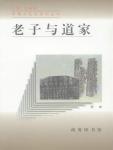Chapter 1 Section 1 Yin Junzi and "Tao Te Ching"
At the end of the Spring and Autumn Period, around the middle and late 6th century BC, a great philosopher——Lao Tzu came out of our country.He left behind a book of only 5,000 words, which contains many very profound truths.
The Spring and Autumn Period and the subsequent Warring States Period (475 BC-221 BC) was an era of violent social turmoil in the history of our country.At about the same time, many great philosophers emerged in ancient Greece; Sakyamuni founded Buddhism in India;Among them, those with greater influence include Confucianism, Mohism, Taoism, and Legalism, as well as many schools of thought such as Yin-Yang School, Ming School, Strategist School, and Farm School.After Emperor Wu of the Han Dynasty "respected Confucianism alone", these schools gradually disappeared, and only Lao Tzu and the schools he advocated accompanied Confucianism like a shadow.If the world is peaceful, Confucianism will flourish; if society is not peaceful, Taoism will prevail.If a scholar became an official, he would talk about Confucianism to rule the country and bring peace to the world; if he lost his official position and was in adversity, he would talk about Lao Tzu to relieve his worries.Therefore, at least since the Han Dynasty, intellectuals not only read Confucian classics, but also studied Laozi and Taoism. The annotations of Laozi's books can be said to be overwhelming.Since modern times, Laozi's books have been translated into various languages in the world.In recent years, it is said that new translations have been published every year.Lao Tzu's theory has become the common ideological wealth of people of all countries.
Regarding Laozi, Sima Qian already had different opinions when he wrote "Historical Records".It is generally believed that Lao Tzu's surname is Li Ming'er, and his style name is Dan. He was called Lao Dan in history.He is a native of Ku County in Chu State (now Luyi County, Henan Province). He has done the history of the Zhou Dynasty and is a small official in the court.Later, seeing the decline of the Zhou Dynasty, he left the court.He is dozens of years older than Confucius and is a predecessor of Confucius.It is said that Confucius once asked him about rituals.He is taciturn, concentrates on self-cultivation, keeps his name incognito, and does not ask others to know.So Sima Qian called him a "hidden gentleman".Later generations can't figure out who he is, which should be related to this attitude towards life.
According to "Historical Records Biography of Lao Tzu", Lao Tzu left the palace and arrived at a pass. The officer guarding the pass said to him: "Sir, you are going to live in seclusion. Please write down your knowledge so that it will not be lost." So Lao Tzu wrote I wrote the first and second articles, with a total of 5,000 words.Later generations called one "Tao Jing" and one "De Jing" collectively, or simply took the author as the title of the book and called it "Lao Zi".In the current version of "Laozi", "Tao Jing" comes first, and "De Jing" comes after. In 1973, silk scripts from the early Western Han Dynasty were unearthed from the Mawangdui Han Tomb in Changsha. Among them, "Laozi" has "De Jing" first and "Tao Jing" after it, which is in the same order as the "Lao Zi" seen by Han Fei during the Warring States Period.The order of chapters in the current version of "Lao Tzu" is obviously arranged by later generations.
The content of "Lao Tzu" is mainly the thought of Lao Dan.The works of the Spring and Autumn Period and the Warring States Period are often a summary of the thoughts of a school, and the book "Laozi" also incorporates some thoughts of the Warring States Period.Based on these contents, some people set the time when "Laozi" was written in the Warring States period, which is wrong.
According to the research of contemporary scholars, some content in Laozi that opposes benevolence and righteousness and laws may appear later, but the philosophical thoughts in Laozi, such as the famous propositions of the way of heaven and nature, doing nothing and doing nothing; things generally exist Opposites, opposites transform into each other, and political thoughts such as a small country with few people are generally considered to be Lao Tzu's own thoughts, or are close to Lao Tzu's own thoughts.Because in pre-Qin, "Xunzi", "Han Feizi" and "Lushi Chunqiu" and other documents, the description of Laozi and his thoughts is roughly the same.
Even those thoughts that came out later are closely related to Lao Tzu's thoughts and are the extension and development of Lao Tzu's thoughts.It is precisely because Laozi advocates simplicity and opposes ornamentation that people can further infer that he also opposes forms of benevolence, righteousness, etiquette, policies and decrees.For the convenience of description, the thought of Laozi mentioned in this chapter is the thought of the book "Laozi".

